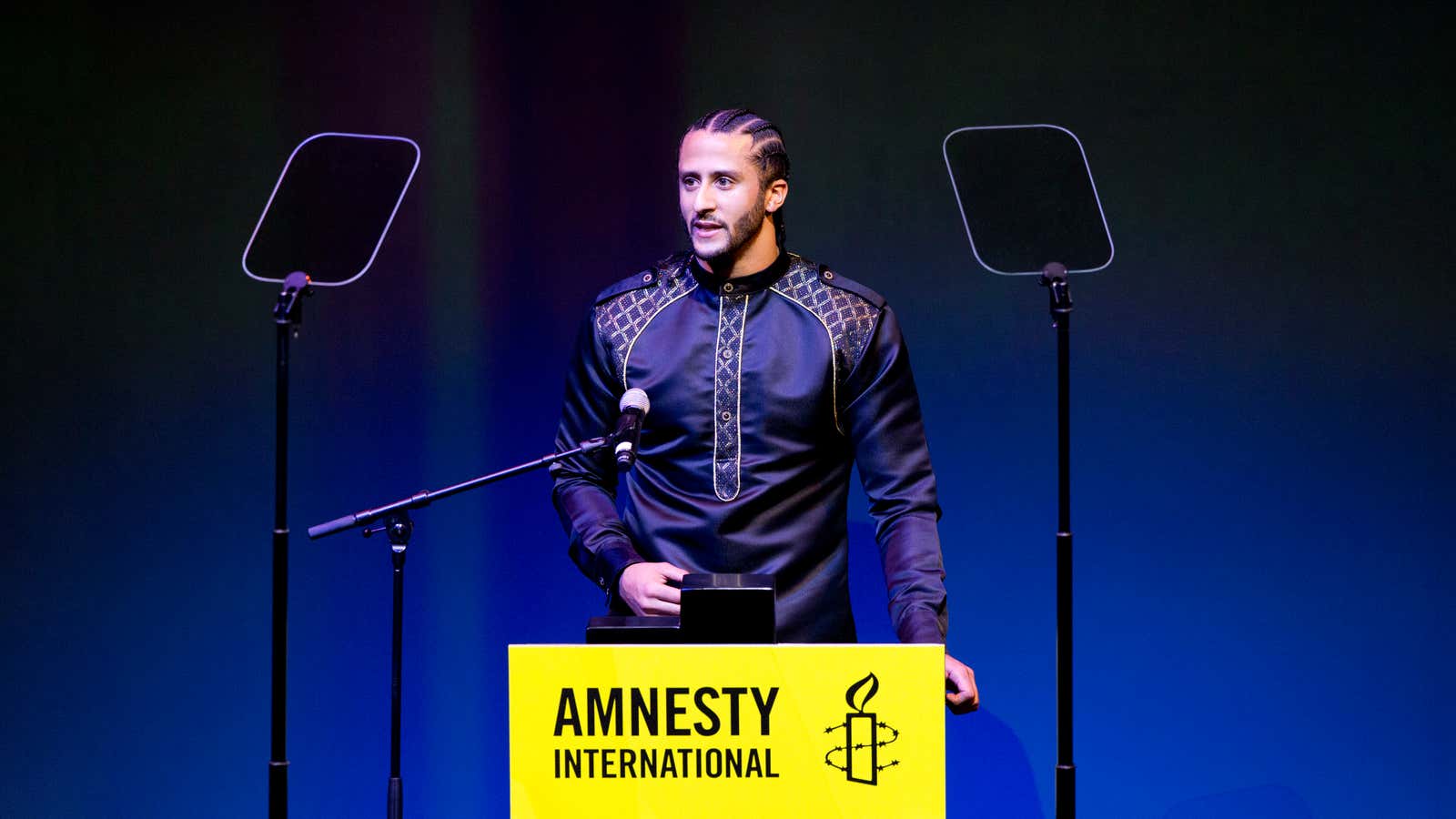Days ahead of the start of the US football season, Nike has taken a stance in an issue dividing the National Football League and America.
It made clear it was solidly on the side of Colin Kaepernick, the former 49ers quarterback who began protesting police brutality and racial injustice in 2016 by kneeling during the national anthem and spurred others to follow suit. The sportswear maker yesterday (Sept. 3) revealed Kaepernick, a free agent not currently signed to any team, as a face of the 30th anniversary of its “Just Do It” campaign.
As expected, the news generated a lot of buzz and outrage. Donald Trump—who once said of the “take a knee” protest that he’d love team owners to order “that son of a bitch off the field right now”—was notably silent on the issue. But many people reacted online by declaring they would boycott Nike products, with some going so far as to share videos and images of them destroying the branded gear they own.
That said, football fans will find it hard to boycott Nike, since it’s the official outfitter for the league and its 32 teams.
Kaepernick has had an endorsement deal with Nike since 2011, but this new contact is considered a “star” deal—worth millions annually and with royalties—on par with what a top NFL player would fetch. The deal includes his own branded line of apparel, including shoes and jerseys.
Surely Nike in its calculations had decided that Kaepernick’s activism would ultimately benefit the brand, even if it ruffled some feathers. After all, during the second quarter of 2017, when he was an unsigned free agent, his official jersey was the 39th most popular in terms of sales in the NFL—the only player in the top 50 who didn’t belong to a team. In September 2016, shortly after he started his protest when he was with the 49ers, his jersey became the NFL’s bestseller online, suggesting fans were buying them to support his stance.
While brands have traditionally stayed silent on polarizing issues, many are starting to publicly take a stand on social issues. Doing so increases awareness and engagement of their campaigns, and there are indications they’re especially effective on millennial shoppers, who are likely to support brands that support causes they care about.
Update: This story was updated to clarify that Kaepernick had signed a new contract with Nike for its “Just Do It” campaign, but that he already had an endorsement deal with the brand dating back to 2011.
